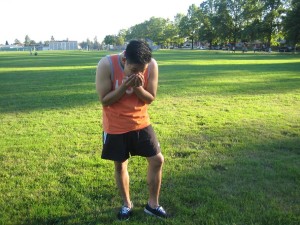Runny nose while eating is considered quite common and also called as gustatory rhinorrhea. If an individual develops runny nose once specific foods are eaten, a doctor should be consulted regarding the symptoms and suitable treatment options. It is important to note that runny nose can indicate another medical issue not related to eating. The common explanation for getting this issue when eating includes food allergies, hay fever and the heat of foods. Runny nose can be treated with modifications to the diet as well as over-the-counter medications. If you want to learn more about runny nose and various ways to manage this symptom, read here.
Temperature of food
The sinus cavity is covered with mucus membranes that help maintain the nasal passages damp and clear from debris. If the individual is previously blocked or have extra mucus present in the sinuses prior to eating and the individual eats warm food or drinks a warm beverage, the heat will melt the mucus thus resulting to runny nose.

There are also some spices that can affect the sinus cavity such as chili pepper, cayenne pepper and curry powder. Take note that these spices can stimulate the mucous membranes which causes them to generate excessive amounts of mucus that will run down the nostrils. If an individual is prone to develop runny nose, he/she must avoid these foods if possible.
Food allergies
A usual symptom of food allergies is sinus complications. If an individual has food allergy, he/she can develop nasal congestion, excessive sneezing and runny nose. The common triggers of food allergies include peanuts, fish, nuts, wheat, soy, milk and eggs. If the individual notices that he/she develops runny nose while eating specific types of food, a doctor should be informed.
The runny nose is also a result of irritation and swelling in the sinus cavity from the elevated levels of histamine. Once the individual eats something he/she allergic to, the immune system will malfunction and fails to recognize the proteins in the food as safe. It considers it a threat to the body. As a result, the body establishes a defense by producing antibodies and histamine. These two are responsible for protecting the body against bacteria, viruses and infection. Excess amounts of histamine that is present in the sinus cavity will lead to runny nose.
Hay fever
If an individual is diagnosed with hay fever or allergic rhinitis, certain vegetables and fruits can instigate an allergic reaction, resulting to runny nose. Based on latest studies conducted, common tree pollen is connected with fruits such as bananas, apples and pears. Even though fruits and vegetables do not contain any tree pollen, the immune system mistakenly identifies the structure of the food as tree pollen, resulting to the common symptoms of hay fever.
